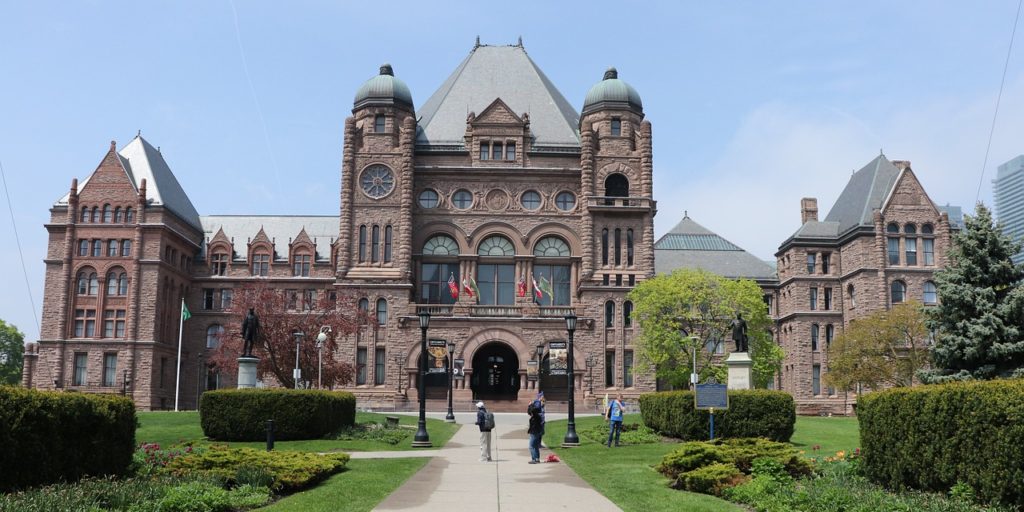- Lawsuit challenges insurance evaluations in total loss collisions - March 4, 2025
- Superior court ruling may help improve insurer transparency - February 4, 2025
- Property owners must be proactive to ensure premises remain safe - September 27, 2024
By Tony Poland, LegalMatters Staff • An amendment to the Solicitors Act addressing contingency fees should be applauded for bringing “transparency and uniformity” to the process but the question of how well it will work is still up for debate, says Barrie-area litigator Steve Rastin.
The contingency-fee reform takes effect next month and is meant to clarify what can often be a source of confusion for clients.
“These are important changes. Whether they work or not, the government and the Law Society of Ontario (LSO) benchers who drafted this deserves credit for attempting to fix a problem,” says Rastin, senior counsel at Rastin Gluckstein. “The changes should help level the playing field and end the current bizarre situation where a client looking at law firms can’t figure out who’s offering the better deal.”
‘Fairly disputed issue’
He tells LegalMattersCanada.ca the “concept of a valid retainer agreement has been a fairly disputed issue in the media, in the courts and public opinion.”
The government has attempted to deal with the issue in the past, Rastin says.
“The implemented changes were convoluted and so difficult to understand that there was a lot of ambiguity. Some people arguably took advantage of that,” he says. “This new system and some of the elements it contains are quite interesting.”
Rastin says one of “the big fights we had in the old system” involved the costs award when a case was resolved.
He explains that if a case settles for $100,000, the insurance company might pay an extra $15,000 toward legal fees, along with any disbursements.
“The problem was some lawyers were billing 35 or 40 percent of the damage award and taking the costs,” Rastin says. “Regulations say the costs belong to the client, not the law firm. You had to get special permission to do what used to be very common, which is cost plus case.
The process was open to abuse
“In some cases, lawyers took a big percentage and the cost. If you start adding them together, firms were billing half the settlements. In my opinion, that is unethical,” he adds. “Depending on the retainer agreement, it is open to abuse if you are unscrupulous.”
With the coming amendment, the language is simpler, and the fee calculation is more straightforward, Rastin says.
He says another problem was when defendants made offers on an all-inclusive basis.
“Then you have to work backwards, determining how much of the settlement is for costs and disbursements and how much is for damages, says Rastin.
He says one good aspect of the reform is the requirement for lawyers to post their maximum rates on their websites.
- Court issues ‘real-world ruling’ in appeal of civil jury decision
- Rastin looking forward to the future after Gluckstein merger
- Directive to take a break from civil juries needed as delays mount
“However, you could get a rush to the bottom with lawyers saying, ‘Hire me, I charge less than the other guy,'” Rastin says. “But at least you are going to have some level of transparency. Right now, if one lawyer charges 15 percent plus costs, and another is charging 30 percent with no costs, how do you know who is charging more?”
He says what could have been improved is the new client retainer, which is lengthy.
“There is some concern that if you need 15 pages to explain the document to the client, maybe they could have done a better job of drafting it,” Rastin says. “On the one hand, you want to make sure the client is fully informed, but on the other, there are some in the profession concerned about just how you wordy it has gotten.
“At the end of the day, it would have been nice if the retainer agreement was two pages,” he adds. “To me, sometimes shorter is better.”
Contingency fees vital to access to justice
While some criticize the notion of contingency fees, Rastin says they are vital to access to justice.
“On a contingency case, if a client loses, they don’t pay. The important thing to remember is that many personal injury cases would never see a courtroom unless there was a lawyer prepared to take all the risk,” he says. “People are often going into courtrooms without lawyers in criminal and family law cases.
“If we didn’t have a contingency fee system, despite what our friends in the insurance industry say, insurers with vast financial and legal resources would be allowed to run roughshod over accident victims.”
Rastin praised LSO benchers for their work on the amendment.
“They were caught between a rock and a hard place. They had to deal with government and public opinion, trying to create something effective,” he says. “They put a lot of effort into developing plain language. The idea was to craft something that people will be able to understand.
“Whether it works or not, time will tell,” Rastin adds. “The jury is still out, but the people who are behind this deserve some credit for trying to bring transparency and uniformity into the process. After July 1st, we will all be on level ground.”


Pingback: Gluckstein Lawyers' Agnew 'excited' to join Easter Seals board ⋆ LegalMattersCanada